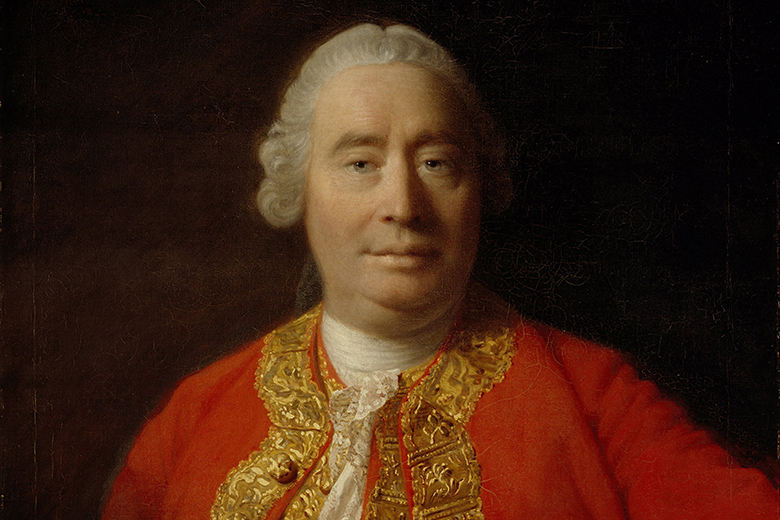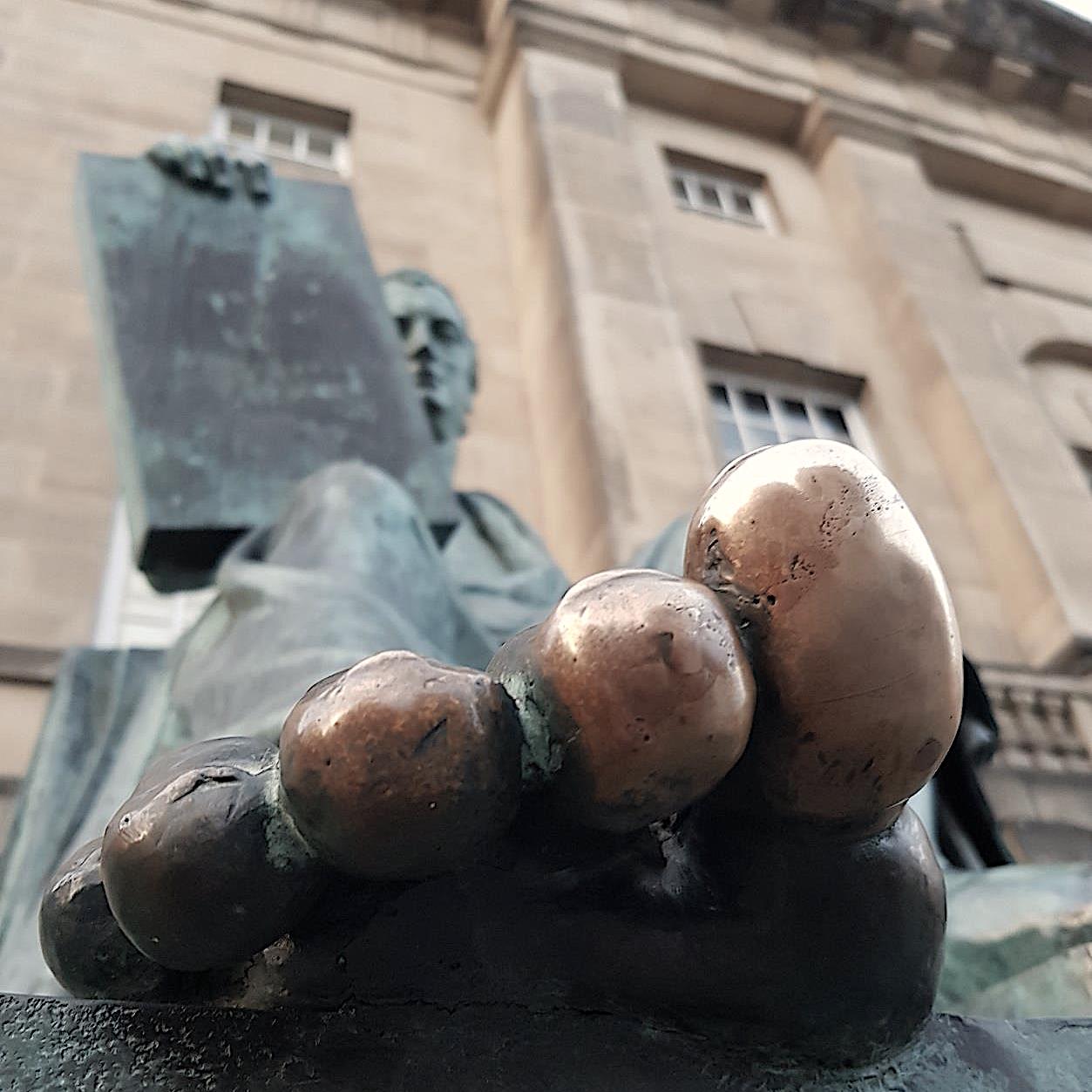Edinburgh History & David Hume: the Great Infidel
25th Mar 2021
In this series, we tell the stories of a range of characters from Scottish history. In all of them will be the question, "If we could ask... what would the answer be?" This time we look at David Hume…
David Hume: the Great Infidel
Written by Mercat Tours Storyteller Simon Bendle
Of all the statues on Edinburgh’s historic Royal Mile, that of David Hume, the great philosopher, is perhaps the oddest.
There he sits on his plinth, nine feet tall, clad scantily in the robes of an ancient Greek, a protruding big toe polished smooth by the touch of countless passers-by.
But Hume was no Greek of course; he was a Scot. Born just yards from where his curious statue now stands. And just yards, too, from St Giles’ Cathedral where – back in his day - believers would doubtless have fussed and fretted over his controversial views on God.
Because in matters of religion, Hume was famously – and firmly – sceptical. It was a brave position to take in pious 18th century Scotland. And one that made him enemies, cost him work, and earned him the unwelcome labels of “atheist” and “infidel”.
In 1745, for example, Hume came close to being named chair of moral philosophy at Edinburgh University – before the appointment was blocked by the capital’s senior clergy.
Six years later, he was overlooked for a similar position at Glasgow University, again because of his presumed atheism.
In the mid-1750s, Hume only narrowly escaped being hauled before a Church of Scotland court on damaging charges of heresy.
Would David Hume have regretted being so open about his scepticism?
Sometimes I like to imagine gathering a group of brilliant Scots – alive or dead – for a fantasy dinner party, with David Hume’s name the first on my guest list.
And in between courses - with a glass of claret in hand - I’d like to ask the great man if he ever secretly regretted being so public about his scepticism.
Was it worth it?
Might he perhaps have been wiser to have held his tongue and settled for an easy life? Better to have kept his views close to his chest – like his friend and fellow philosopher Adam Smith - and thus been rewarded with a comfortable teaching position at a top university?
The dead can’t speak of course, but I suspect I know how Hume would respond.
Because even without a prestigious academic position, Hume established himself as a towering figure in Scottish thought and Scottish history. For many, he is simply the greatest philosopher ever to write in the English language.
And the way Hume faced his final illness also suggests a man who lived a life without regrets, and who cared little where his controversial views on religion might lead him, least of all post mortem.
David Hume’s impact on Edinburgh history
The writer James Boswell, a churchgoer, paid him a visit six weeks before the end expecting to come away with proof that no one – not even David Hume – could remain sceptical about God in the face of suffering and death.
But to his surprise, Boswell found the dying philosopher calm, relaxed and in a positive frame of mind – while also remaining as decisively and unambiguously sceptical as ever.
David Hume died of cancer at his home in Edinburgh’s New Town on 25 August 1776, aged 65. There was of course no deathbed conversion to the church - to the great disappointment of many clergymen.
Four days later, a large crowd stood in heavy rain outside his house in St David Street to pay their respects before his funeral.
As the coffin was carried out, one man shouted, “Ye ken he was an atheist!” To which another responded, “Aye, but he was honest!”
David Hume, a man with regrets? The answer, surely, has to be no.
Learn more about David Hume in Simon's video above, on the "most acute theologian Hume had ever met"!

Caption: As an important figure in Edinburgh history, Hume earned himself a statue on the Royal Mile, which people have been known to rub the big toe of for good luck!

